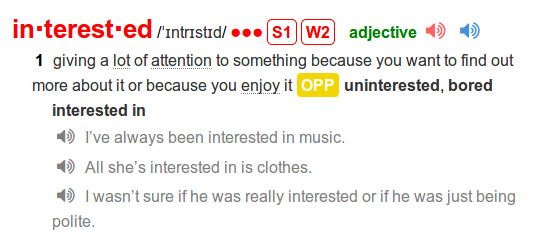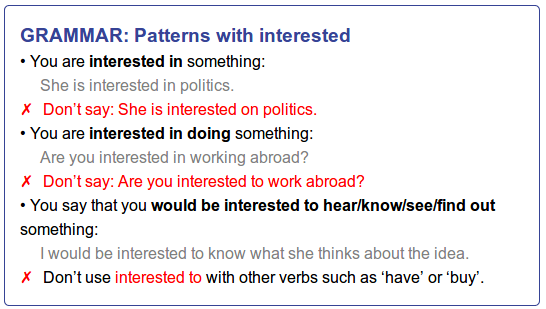Want to Stop Translating in Your Head? Here’s How
If you can’t understand English speakers in conversations, it might be because you’re still translating everything in your head.
When you first started learning English, translating to your native language was a natural part of the process. As you progress, you should be transitioning into understanding and thinking directly in English.
But what if this transformation never happened for you? What if you’re stuck at that frustrating place where you’re still translating all the time?
How to Stop Translating in Your Head
Interestingly, your first language and your second language live in different areas of the brain. And of course, your native language part is much more dominant than the English one.
So if you’re translating everything you’re hearing and saying, you’re using the first part of the brain continuously. And by doing this, you never give the English part a chance to grow.
The question is: what can help you finally make that transition into thinking directly in English?
Of course, the answer is to silence that voice that keeps translating. But instead of forcing it to stay quiet (which won’t work), you’ll need to train the English part until it’s strong enough to take control whenever you want it to.
By following the tips I’m going to share with you today, having conversations in English will become less frustrating and a lot more enjoyable.
After some time, you’ll start to naturally think in English, you’ll understand more of what you hear, you’ll make less mistakes and you’ll speak English faster and more fluently.
Keep reading to discover:
A habit you need to break to stop translating in your head.
A study tip that will make your English sound more natural.
The #1 technique fluent English speakers used to strengthen their English.
A simple practice that will train your brain to think in English.
How to find the courage to step out of your comfort zone.
Imagine Speaking English Effortlessly!
Discover the world’s best way to improve your English speaking and pronunciation.
Sign up today and receive 80% off on a lifetime membership!
Tips to Stop Translating in Your Head
Tip #1: Use an English Learner’s Dictionary
The first thing you’ll need to do is to stop using dictionaries that translate into your native language. Some dictionaries have a learner’s section that gives a simplified English explanation. Two of my favorites are Merriam-Webster and Longman Dictionary of Contemporary English. By using a dictionary that explains things in English, you’ll be helping the English part in your brain create the connections it needs to grow and become stronger.
So for example, if you come across the word “wander” and you don’t know the meaning, you could look for the word in Longman’s dictionary and you’ll see:
If there is a word here that you don’t understand, look it up again.
Yes, it’s a longer process than just finding the word in a dictionary that translates into your language, but it’s absolutely necessary. Very simply, if you want to stop translating into and from your native language, you’ll need to stop using a dictionary that translates to and from your native language.
By using an English dictionary, you’re creating connections to other English words and you’re learning how to think about the language you’re studying in the language you’re studying.
Tip #2: Learn English Phrases Not Just Words
Learning whole phrases will help you so much more than just learning isolated words. By learning full sentences, you’re not only discovering the meaning of the word, but you’re learning how to use it too.
You will also learn how the word is used in relation to other words which will help you learn how to think in English, and ultimately it will make your English sound more natural.
Indirectly, you’ll also be improving grammar and learning how to use prepositions correctly.
Let’s use a simple example. Instead of just memorizing the meaning of “interested,” you could look it up on Longman Dictionary and study the way it’s used in the example sentences:
From these examples, you can see that the correct preposition to use after “interested” is “in” (not “about” or “on” 😊). What I love about this dictionary is that sometimes it lists the common mistakes with that particular word. Take a look at this:
Useful, isn’t it?
Using the correct English preposition is a huge challenge for so many English learners, precisely for this reason; because you learned the words on their own and not within a phrase.
Tip #3: Surround Yourself With English
From my experience, the students that make the biggest progress do this: they expose themselves to something in English every day.
Whether it’s watching a video (without subtitles), listening to a podcast, reading an article or even just an Instagram post, without exposing yourself to the language everyday, you’ll find it really hard to improve your English enough to stop translating.
Just listening or reading passively is okay sometimes, especially on the days that you don’t have a lot of time. It’s definitely better than nothing. But listening or reading actively is so much more effective.
For example, while you’re reading or listening, you could take notes of what you’re learning. Write down unfamiliar words, and look them up just as we discussed earlier. You could also write down some of the phrases that could be useful for you and read them out loud.
One of my favorite websites for podcasts is NPR.org. Once you’re on the website, go to “shows and podcasts.” They have a variety of channels and shows you could listen to.
Make sure you listen to something that’s relevant and useful to you. For example, if you’d like to learn more about business English vocabulary, I highly recommend a podcast called Planet Money.
You should also check out our English lesson plans, which are designed specifically to help you develop your fluency and build your confidence in English.
Tip #4: Think in English
Thinking in English is a simple but powerful technique. What’s great about it is that it doesn’t need any preparation or a huge amount of time. Some of my students started with 10 minutes a day, and experienced impressive results.
For example, you could take 5 minutes at the beginning or end of your day and talk to yourself about the things you have done today, or going to do tomorrow. Some of my students even narrate whatever they’re doing at that moment in English.
Tip #5: Get a Teacher
If you’ve been stuck for a long time, and can’t seem to figure out what you’re doing wrong, getting a teacher will help you immensely.
You may be doing certain things that are hurting your progress without realizing it. This is why it’s so important to get feedback from a teacher or at least someone who was able to overcome the obstacles you’re facing.
Challenging ourselves to step out of our comfort zones is difficult. And sometimes what we need is a little push forward, or guidance in the right direction.
Make sure you choose a teacher with your preferred accent. For example, if you’d like to live in Canada or the U.S. one day, it might be a good idea to work with a teacher who has a Canadian or American accent.
Why You Need to Stop Translating
The problem with translating in your head is that it really slows you down. When you’re in the middle of a conversation, you have to stop, think in your native language, then translate your thoughts into English, and speak or listen to the person all at the same time.
Also, when you translate word for word from your native language you’ll be using vocabulary and sentence structures that are incorrect or unnatural in English.
For example, the word “bitte” in German can mean both “you’re welcome” and “please.” So a common mistake with some English learners who are German is to answer “thank you” with “please” instead of “you’re welcome.”
As I mentioned earlier, translating new words and expressions at the beginning of your English learning journey is necessary and helpful. But as you get to an intermediate level, it’s important to stop relying on this process because it will stand in your way of becoming fluent in English.
Summary
So those are some tips and techniques that will help you stop translating in your head. It will take time, but as long as you keep practicing, one day it will happen naturally. You’ll just suddenly realize: “I’m not translating any more!”
If you have friends who are struggling with this, please share it with them. Thanks for reading and see you next time!
About the Writer
Sama is the founder of In English With Love and an online English educator from Canada. Her mission is to make quality English learning materials accessible to English learners and teachers everywhere.

















